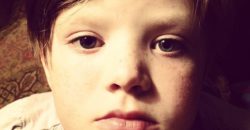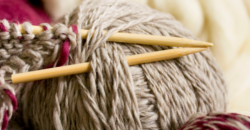thinking thursday.
MIND
Because Tess was diagnosed with Asperger’s Syndrome a few weeks ago, I’m focusing my energy on reading more about it, learning how we can help her explore and love her different “wiring.” So you’ll see more links to information about Asperger’s information in Thinking Thursday today and in the future, I’m sure. I hope even if you aren’t touched by this uniqueness in your own life, the information will help you be more understanding of people who are.
I’ve had many big learnings in this journey, including one about the story I was telling myself about Tess. I was living a “she is broken” story while Tess is living an “I am awesome” story. You can read about that discovery here.
When I worked at an international association that focused on human resources issues, I was their vice president of international and diversity programs. Active in the disability community, I was involved in that work when the Americans with Disabilities Act (ADA) was passed. The language in that Act was that employers had to provide “reasonable accommodation” for people with disabilities. When telling a friend about the victory, he said quietly: “But why wouldn’t we ask all employees what they need to be their most successful at their jobs?”
Indeed.
I think of Tess’ diagnosis as a way into what she needs to be successful. My brain and her brain simply work on two different operating systems; the challenges are when those two systems try to interact or work together, like a PC and a Mac. It’s my job to learn about her operating system and to teach her about mine. This book is my guide.
What does Tess need to succeed? I don’t fully know yet. But I’m learning: She needs a visual calendar. She needs structure. She needs a place to go to chill out and things she can manipulate with her hands while there. She needs checklists. She needs help making and keeping friends. She needs medication, at least for now.
What do you need to thrive? What do you wish you could tell other people you need to do your best work? What keeps you from telling them? I hope you’ll leave a comment after this post with your answers to that question–and any suggestions for resources you have as we wade deeply into the world of Autism Spectrum Disorder and Asperger’s.
We just bought a used iPad for Tess (from a friend of mine from college 30 years later – isn’t the circle of life fantastic?) and while we wait for its arrival, I’ve been looking into good apps for kids with Asperger’s or High Functioning Autism. So many articles talk about its usefulness with kids who have autism that we thought it was worth a shot! I’ll let you know!
I have decided I need to consciously try to build mental resilience as I age (can you tell I have a birthday coming up soon? and that Alzheimer’s runs in my family?). So I am learning one small thing every day. So far, I’ve learned how to cut a mango, fold a fitted sheet, remove nail polish more efficiently, roll up my sleeves, make carrot juice in my Vitamix, how to choose and buy a pineapple, and how to repurpose an old cell phone into an emergency phone for my car (or other location).
I also discovered how to keep track of things I’ve ordered online. It’s a fantastic iPhone app called Slice.
BODY
In the last two weeks, I have changed my life. I spent four days with a miserable headache as I detoxed from the caffeine and sugar in Coke. I had a tiny addiction to it. I stocked my kitchen with whole foods. I primarily eat only raw vegetables and fruits until dinner, and dinner is smaller, more mindful, more clean eating. We are eating real food, not canned or boxed food. I haven’t had a Coke in two weeks, I’m drinking a lot more water. I’m juicing carrots and spinach and beets and loving it. I am determined to lower my blood pressure and go off of the blood pressure medication I’ve been on for two years. And I’m relying on this book–Coach Yourself Thin–to help me better understand patterns that have been harmful to my health.
And here’s the deal: I have more energy, feel far less depressed, my blood pressure is fantastic, I feel like moving and exercising more, and my mind is so much clearer. I’m happier. In just two weeks. I can’t wait to see what a month of this kind of mindful eating and moving will bring me.
I’m noticing healthy recipes and making them healthier, taking this (amazing!) baked oatmeal and making it vegan (Egg Replacer, Earth Balance instead of butter, and almond milk) and less sugary. Using fresh fruit and veggies to create taste sensations like this mango salsa. And yes, having pizza, but making the dough myself and using fresh tomato sauce and veggies on it rather than a frozen pizza. Food can be slower, more mindful, and more satisfying. Touching it, cutting it, having a bag of organic carrots in the fridge to nosh on–it feels like I’ve undergone a revolution.
I want to be here a long time. I want my veins to be happy veins. I want my heart to keep pumping. I want my mind to be free of the fog of sugar and processed foods.
SPIRIT
I found this talk by Jane McGonigal to be very interesting. And then I signed up for the game she talks about: SuperBetter. SuperBetter is a tool created by game designers and backed by science to help build personal resilience: the ability to stay strong, motivated and optimistic even in the face of difficulty challenges. Resilience has a powerful effect on health — by boosting physical and emotional well-being. Resilience also helps you achieve your life goals — by strengthening your social support and increasing your stamina, willpower and focus. Every aspect of the game is designed to harness the power of positive emotions and social connection for live, feel, and act better. Listen to the talk before you play the game to build up your physical, mental, emotional, and social resiliency.
VOICE
“Real generosity is doing something nice for someone who will never find out.” -Frank A. Clark
YOU
How about you? What have you read or seen of interest this week? What iPad app suggestions do you have for Tess? Leave a note and link in the comments so we can all check it out!










